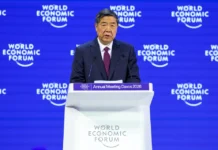The Kenya Revenue Authority is moving decisively to prevent the former owner of Java House, ECP Kenya Ltd, from leaving the country as it intensifies efforts to recover a disputed tax bill valued at approximately Ksh 3 billion.
KRA has filed legal proceedings aimed at impounding travel documents of key individuals associated with the firm to ensure they remain available for resolution of the contentious liability. The agency’s action reflects increasing urgency after years of back-and-forth over tax classification and final appeals.
ECP Kenya, once the Nairobi-based affiliate of Emerging Capital Partners that owned Java House until its 2017 sale, is at the centre of the dispute. Initially, KRA issued a demand for over Ksh 3.21 billion in corporate income tax in early 2022, arguing that proceeds from the exit qualified as taxable business income.
ECP Kenya contended the proceeds were investment gains subject to capital gains tax instead. In October 2023 the Tax Appeals Tribunal reduced the liability to KSh 773.8 million but upheld KRA’s authority to tax the amount as trading income.
An appeal by ECP Kenya to the High Court was dismissed in December 2024, sealing the tribunal’s assessment as final.
As the legal and financial stakes escalate, KRA is preparing to safeguard its interest by petitioning the courts to block exits of former executives and board members associated with the company.
The move comes as ECP Kenya has petitioned the High Court for voluntary liquidation, citing the tax burden and legal setbacks as the principal reasons behind winding down operations in Kenya. The application, filed in early July 2025, invites creditors to submit support or objections.
KRA officials argue that the sum remains payable and that remaining parties cannot evade accountability through liquidation or international exit.
Blocking exits is intended to secure access to key witnesses, documentation, and any remaining domestic assets. Legal experts say the action sets a precedent for dealing with cross-border private equity exits where the fund management interface resides within Kenyan jurisdiction.
Observers note the broader implications for foreign investment in Kenya, especially regarding tax planning and corporate restructuring.
The case highlights the risks of underestimating Kenya’s position on permanent establishment and the distinction it draws between capital gains and business income. It also signals KRA’s increasing assertiveness in pursuing large-scale liabilities, even when tied to deals formerly conducted offshore.
With court proceedings now entering a critical phase, the focus will remain on whether ECP Kenya can negotiate a structured settlement or whether the tax authority will insist on full collection through enforcement.
As stakeholders weigh implications, the case is poised to become a benchmark for Kenya’s tax jurisdiction claims and set expectations for international investors operating through local affiliates.
Written By Ian Maleve



















